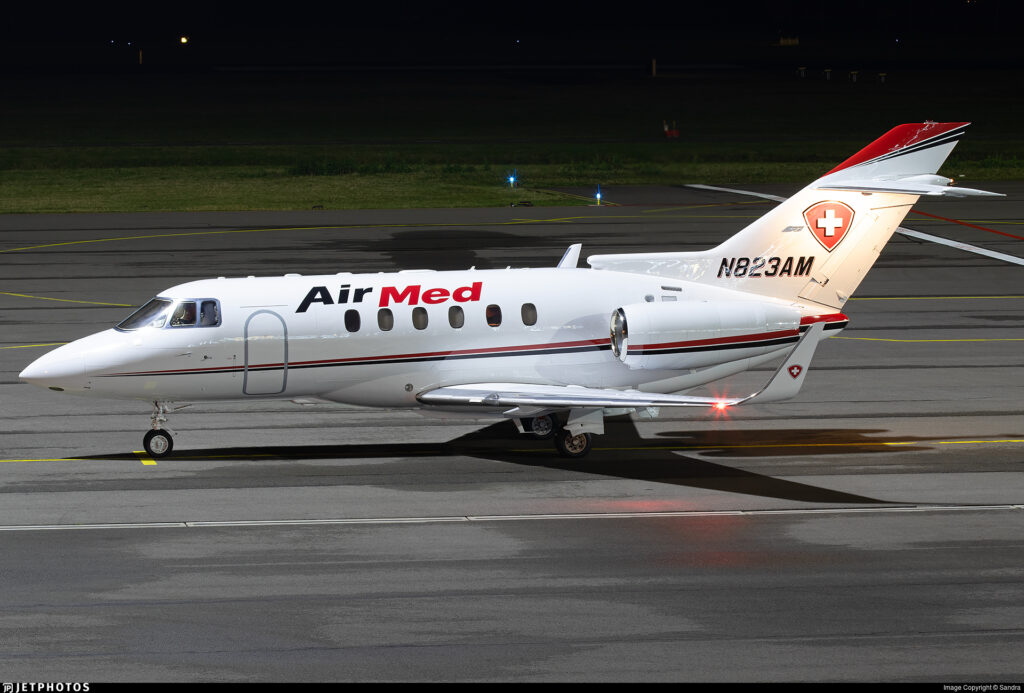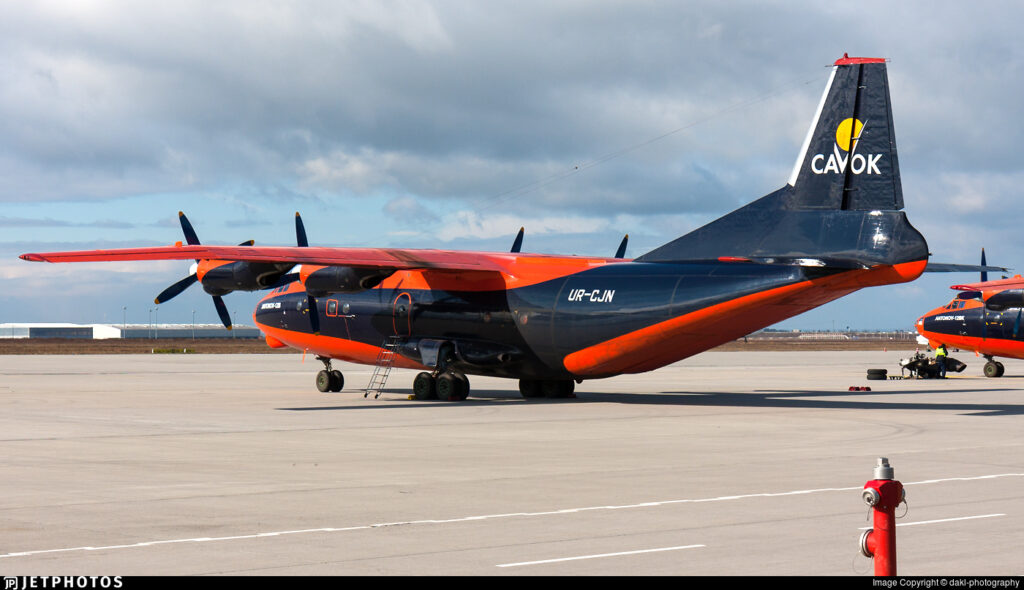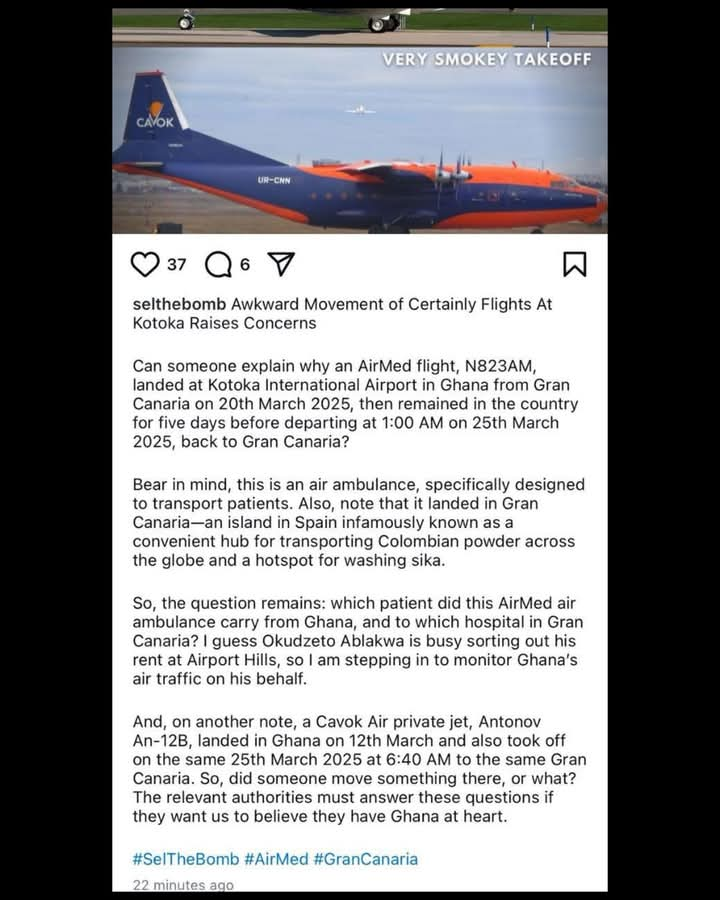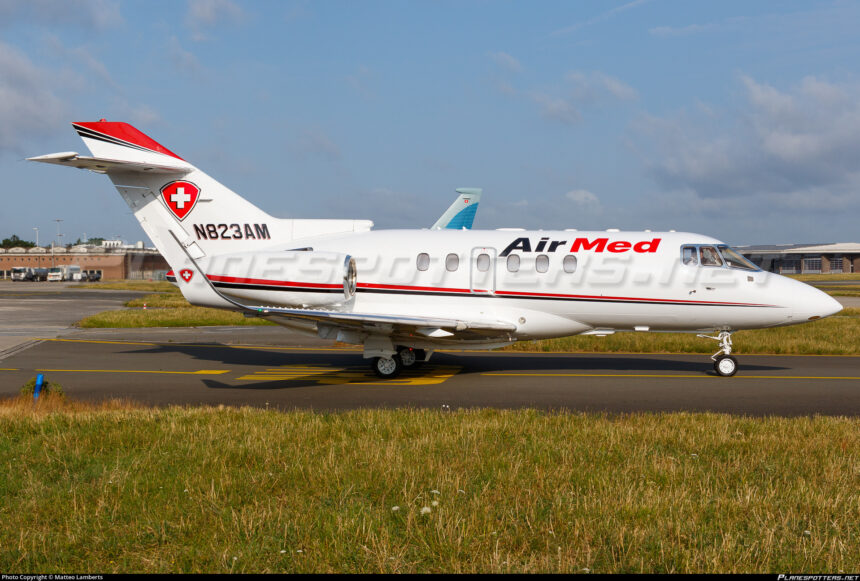Suspicious flights landing in Ghana have recently raised serious concerns about potential illicit activities within the country’s airspace. These incidents, involving flights connected to Gran Canaria, an area known for its links to international drug trafficking, have left the public questioning whether smuggling is taking place or if it’s mere speculation.
Why has there been little clarity from the authorities? And is the Foreign Ministry aware of it?
One of the most alarming cases involved AirMed Flight N823AM, an air ambulance, which landed at Kotoka International Airport in Accra.

Gran Canaria, known for being a hub for international drug cartels, has long been associated with the transportation of illicit drugs, particularly Colombian cocaine.
The air ambulance stayed in Ghana for five days, which is unusual for medical flights. Typically, air ambulances are meant to promptly transport patients, but this flight’s extended stay raises concerns.
Could this flight have been used for more than just a medical mission? Was it transporting illicit goods under the guise of medical transportation? These questions remain unanswered, and the public is left to wonder about the true purpose of this flight.
Another suspicious flight involved Cavok Air’s Antonov An-12B private jet, which landed in Ghana and later departed for Gran Canaria.

The timing and routes of both flights are strikingly similar. This raises questions: Are these flights related? Was the private jet used to transport goods, not passengers? Given Gran Canaria’s reputation, could this flight have been part of the same operation as the air ambulance?
These repeated flights between Ghana and Gran Canaria, with no clear explanation, only deepen the concerns about their real purpose. Were these flights part of a broader smuggling network, or is it just coincidental timing?
Given the suspicious nature of these flights, one must ask: Is the Foreign Ministry aware of these activities? The timing and secrecy surrounding these flights have led to growing speculation that these could be part of a larger operation.
While there is no direct evidence linking the Foreign Ministry to these flights, the connection to Gran Canaria, a known hotspot for drug trafficking, raises critical questions.
Could the Foreign Ministry have been aware of these flights, or is it turning a blind eye? The public deserves clarity, and the authorities must provide answers to alleviate these concerns.

It’s essential to acknowledge that these allegations could be based on mere speculation. The fact that Gran Canaria has long been associated with the international drug trade doesn’t automatically imply that every flight from the region is involved in illicit activities. The flights could have been legitimate operations with no criminal connections.
However, the lack of transparency and official response from the authorities only fuels the speculation. Without clear answers, the public cannot simply dismiss these concerns.
Perhaps one of the most troubling aspects of this situation is the silence from the relevant authorities. With such serious questions surrounding these flights, why have the authorities not made a public statement?
Is this silence a sign of negligence, or is there more to the story than meets the eye? The public deserves to know why the authorities have not addressed these concerns.
Given the gravity of the situation, this silence is unsettling and has left many wondering whether there is more to these flights than we are being told.
Another pressing issue is the lack of investigation into these flights by the relevant authorities. Why have Ghana’s authorities not acted swiftly to address the growing questions surrounding these flights?
Could the government be turning a blind eye to potential illicit activities, or are they actively covering them up?
The lack of any clear response from law enforcement is disconcerting and raises doubts about the commitment to ensuring Ghana’s airspace is secure. This inaction only contributes to the speculation and leaves the public with more questions than answers.
As these flights continue to raise suspicions, the people of Ghana deserve transparency and clarity from their government.
Without a clear explanation of the flights and their purpose, the public cannot be expected to trust that the authorities are acting in the nation’s best interest.
The silence surrounding these incidents is unacceptable, and the government must step forward to provide the answers that the people demand.
With questions mounting about the possible illicit activities tied to these flights, the public deserves clear answers. The authorities must investigate the suspicious flights thoroughly and provide a transparent account of what transpired.
Ghanaians are entitled to know the truth behind these incidents, and the government must take swift action to address these concerns. Transparency and accountability are vital to restoring the public’s trust and maintaining national security.
The people of Ghana deserve more than speculation; they deserve answers.








